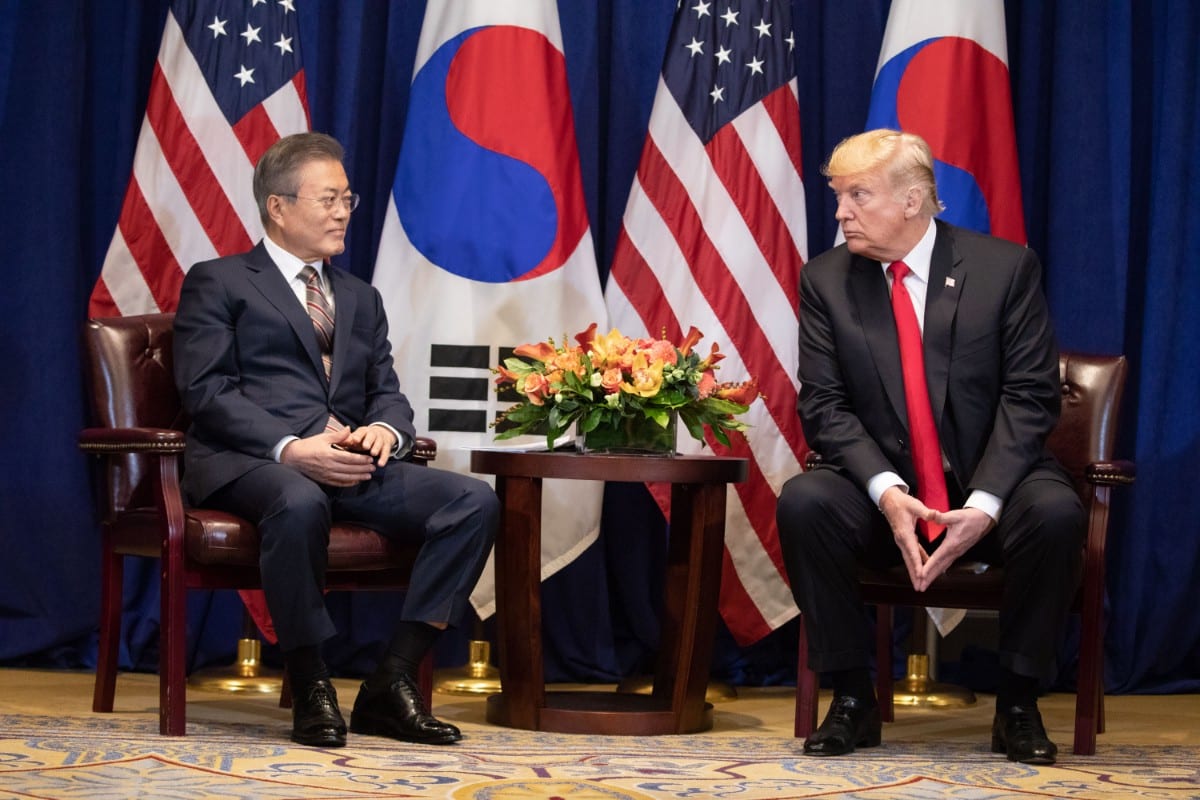 White House Flickr
White House Flickr
Differing Priorities Threaten U.S.-South Korean Unity
As Trump and Kim Jong un appear to be headed for a second summit meeting, a rift is threatening to derail U.S.-South Korean unity. South Korea signaled that it was going to remove sanctions from North Korea to support negotiations. However, following U.S. concerns with the plan, South Korea backtracked and canceled the plans. Then on Monday South Korea changed course again announcing a new agreement with North Korea which calls for linking road and rail networks between the two countries and a joint Olympic bid. These moves by South Korea underscore the growing rift between the U.S. and South Korean priorities entering negotiations.
U.S Priorities
The U.S. priority in the negotiations is the complete, verifiable, irreversible, denuclearization (CVID) of the North’s nuclear arsenal. Washington wants the international community to sustain sanctions to force North Korea to bargain away its weapons. Sanctions relief is viewed only as a reward for denuclearization, and therefore will only occur after denuclearization. As such the U.S. has stated that it will not exempt any inter-Korean projects, until after denuclearization occurs
South Korean Priorities
While the official South Korean policy says that their priority is denuclearization, their actions show that they prioritize better relations before denuclearization. South Korea opened a liaison office in North Korea and signed a military treaty with Pyeongyang. Both moves caught the attention of Washington. As opposed to the U.S., South Korea views sanctions relief as an incentive for North Korea to denuclearize.
The differing priorities that the two allies have are straining relations at this crucial juncture. After hearing about the South Korean plan to lift sanctions Trump said: “They won’t do that without our approval,” Mr. Trump said of the comments. “They do nothing without our approval”. This comment prompted criticism from members of South Korea’s Assembly, with lawmaker Song Young-gil saying he “disagreed with Trump’s choice of the word approval, and that…South Korea’s independent sanctions…do not require approval from other entities.” On Friday a group of South Korean student activists flew banners in Seoul reading “South Korea is not a US colony” and chanted, “Trump needs to apologize.” North Korea and China could exploit this rift to drive the U.S. and South Korea away from one another.
To maximize the leverage that the U.S. and South Korea have when entering negotiations with North Korea, they should present a united front. Both Washington and Seoul should agree on one priority going forward. To do this both sides will have to make compromises. Washington should allow limited sanctions relief, but it should be contingent upon North Korea allowing inspectors to visit the Yongbyon nuclear complex as they had stated they would do on September 18th. This step will allow for diplomacy to continue while also insuring that North Korea moves closer to denuclearization.





